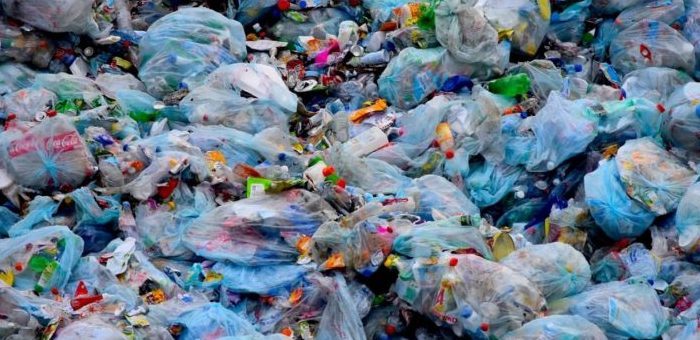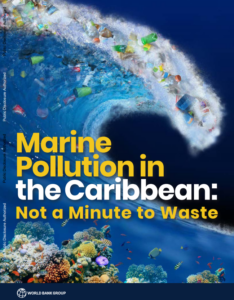Improve the analytics and knowledge base on marine pollution and water quality is key for restoring damaged ecosystems and protecting the Caribbean’s marine resources, said the World Bank in a recent report, examining how marine pollution in the Caribbean threatens the region’s resilience to climate change.
The report ‘Marine Pollution in the Caribbean: Not a Minute to Waste’, published in late May, identifies the key sources of marine pollution and the impact on the wider Caribbean.
It also calls for urgent actions to restore damaged ecosystems and protect the Caribbean’s marine resources, a key source of food, livelihoods and jobs to millions of people dependent on tourism, fisheries and the ocean economy.
The Caribbean Sea is a lifeline for millions of people. Concerted action is crucial to halt and reverse marine degradation in the Caribbean. Effective management of plastics, solid waste, and wastewater are our top priorities to create a blue legacy for future generations,
…said Tahseen Sayed, World Bank Country Director for the Caribbean.
Marine pollution including plastics, sewage, agriculture runoff, oil and chemicals, poses a serious threat, particularly to tourism which accounts for 15% of the region’s GDP and to fisheries which provide income and food security to poor communities in the region.
According to the report, more than 320,000 tons of plastic waste remains uncollected each year in the Caribbean.
Coral reef degradation is also strongly linked to marine pollution and represents an estimated annual revenue loss of between US$ 350 million and US$ 870 million.
Marine pollution is not only an environmental issue, it is an economic and social priority.
Most of the people in Small Island Developing States live within 10km of the ocean and are therefore particularly vulnerable to gastrointestinal diseases related to untreated waste and viruses from mosquitoes that inhabit moist pockets of litter.
This is a significant threat to the region’s development and the quality of life of its people.
The good news is that considerable progress has been made at the global and regional levels to tackle marine pollution.
So far, 14 Caribbean countries have already banned the use of single-use plastic bags and/or Styrofoam and many have joined the global movement to adopt public awareness campaigns and new legislation.
This will also require governments to ratify international conventions, such as the Cartagena Convention, and adopt measures to control marine pollution.
Recommendations
The World Bank proposes a 12-point action agenda for responding to pollution problems in Caribbean SIDS, and taking specific forward looking and concrete steps in support of a healthy, productive, and resilient Caribbean Sea:
- Improve the analytics and knowledge base on marine pollution and water quality throughout the region using common monitoring approaches and guidelines.
- Step up assessment of the economic impacts of marine pollution, and quantify the costs associated with pollution prevention and management, as well as the costs associated with doing nothing.
- Strengthen and harmonize existing national institutional structures, policies, and legislation to effectively reinforce regional governance and align with international mandates and commitments.
- Integrate marine pollution prevention and control policies into the broader context of national policy and planning frameworks.
- Heighten local expertise and technical capacity concerning pollution and water quality management.
- Raise public awareness about the importance of water quality and marine ecosystems to induce behavioural change.
- Strengthen multi-sectoral mechanisms and establish partnerships to address marine pollution.
- Prioritize, dedicate, and increase funding within national budgets for marine pollution prevention and control.
- Make a strategic investment commitment to litter control.
- Make a decisive commitment to reduce consumption of common and persistent litter items including plastics.
- Implement integrated, high-priority interventions to reduce discharge of untreated sewage and nutrients, and promote resource recovery of waste water.
- Improve chemical and industrial pollution control through targeted and cost-effective measures in priority issues.
Explore more herebelow:































































